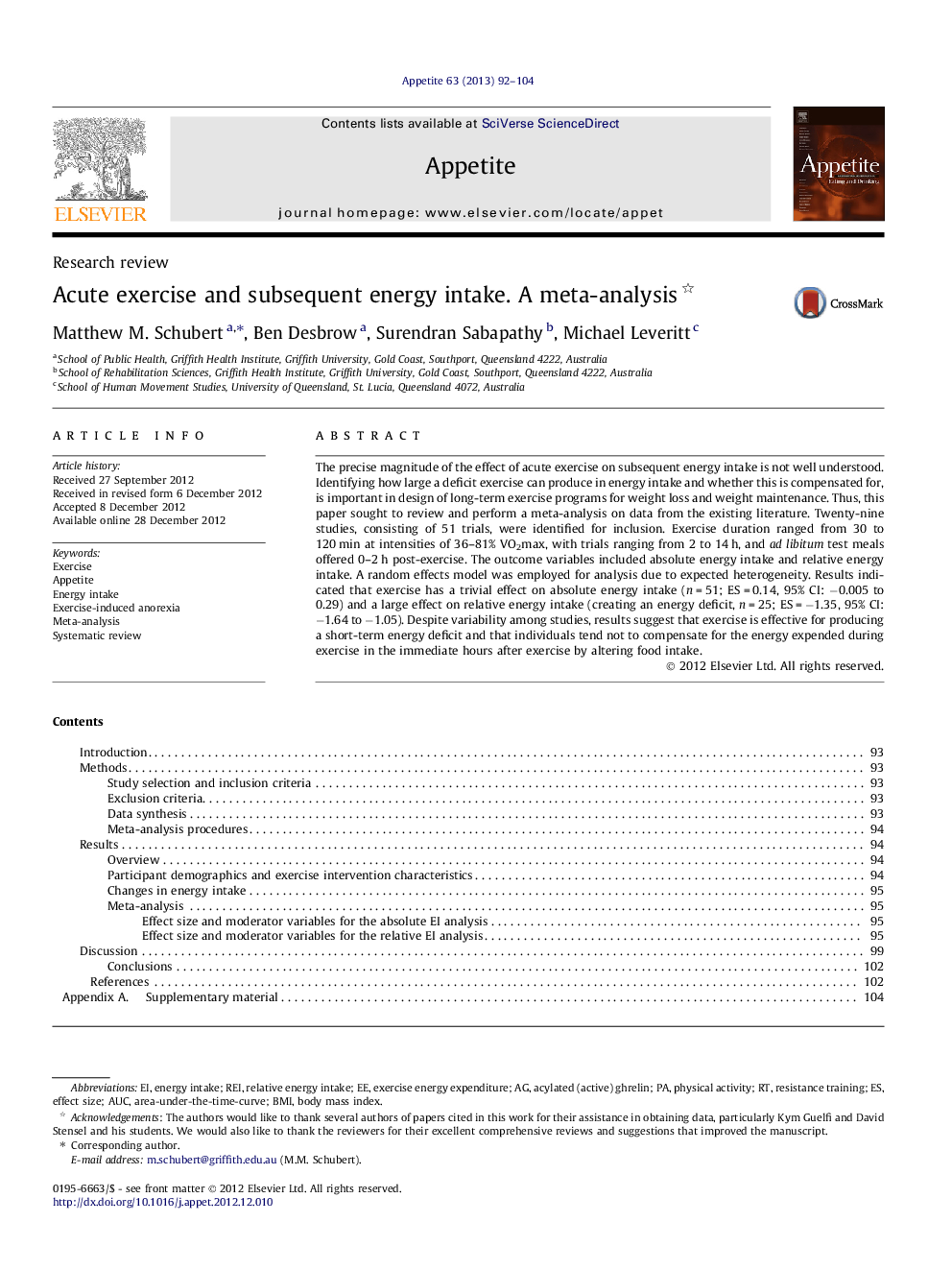| Article ID | Journal | Published Year | Pages | File Type |
|---|---|---|---|---|
| 939650 | Appetite | 2013 | 13 Pages |
The precise magnitude of the effect of acute exercise on subsequent energy intake is not well understood. Identifying how large a deficit exercise can produce in energy intake and whether this is compensated for, is important in design of long-term exercise programs for weight loss and weight maintenance. Thus, this paper sought to review and perform a meta-analysis on data from the existing literature. Twenty-nine studies, consisting of 51 trials, were identified for inclusion. Exercise duration ranged from 30 to 120 min at intensities of 36–81% VO2max, with trials ranging from 2 to 14 h, and ad libitum test meals offered 0–2 h post-exercise. The outcome variables included absolute energy intake and relative energy intake. A random effects model was employed for analysis due to expected heterogeneity. Results indicated that exercise has a trivial effect on absolute energy intake (n = 51; ES = 0.14, 95% CI: −0.005 to 0.29) and a large effect on relative energy intake (creating an energy deficit, n = 25; ES = −1.35, 95% CI: −1.64 to −1.05). Despite variability among studies, results suggest that exercise is effective for producing a short-term energy deficit and that individuals tend not to compensate for the energy expended during exercise in the immediate hours after exercise by altering food intake.
► A meta-analysis of energy intake responses to acute exercise was performed. ► Absolute energy intake is unchanged after exercise, suggesting minimal compensation. ► Relative energy intake indicates an exercise-induced energy deficit. ► Aerobic exercise may be best for inducing energy deficits with minimal compensation.
